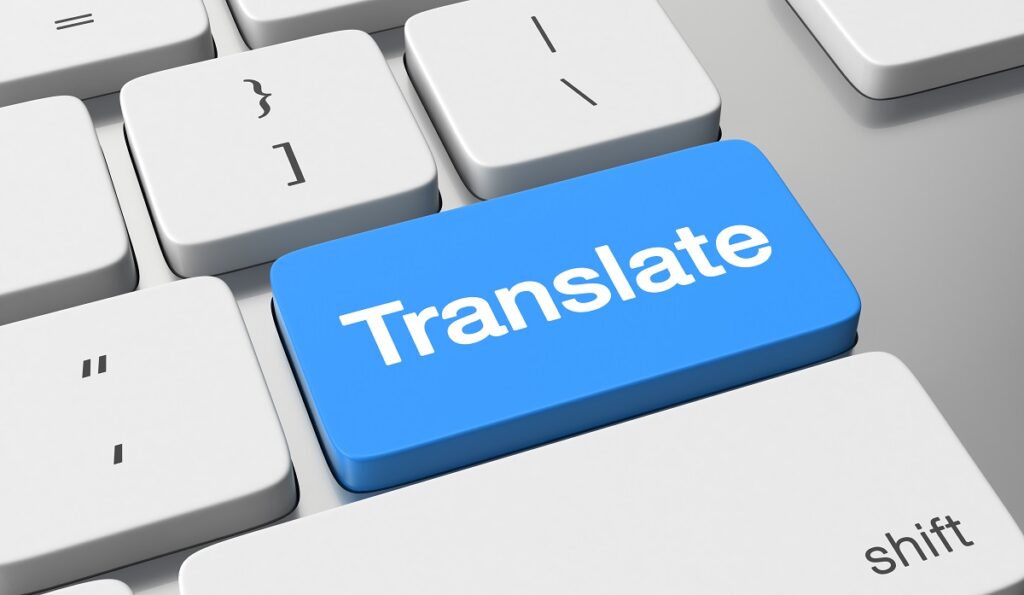In recent years, many people have attempted to use online translators such as Google Translate to save time and money. However, using Google Translate for your professional business can have negative consequences. While machine translation has improved, it is not 100% accurate and causes inaccuracies.

How Accurate is Google Translate?
In a recent study, Google Translate had around 85% percent accuracy. That may seem like a high percentage, but imagine if 15% of your work was translated incorrectly.
Google Translate uses an algorithm called Statistical Machine Translation (SMT) or “deep learning”. Google Translate breaks down given input into words or phrases. At that point, it compares those words or phrases to those in its database. Google Translate then uses the most frequently used translation, which can cause inaccuracies.
Translation quality varies based on the chosen language pair. Some of the most accurate translations are the Spanish-English language pair. But, even translations between these languages are not at the level for use by a business. Other languages have a lower level of accuracy. Some of these include Chinese, German, and Portuguese.
Importance of Accuracy for Legal or Conference Translations
Potential clients are likely to have a bad perception of the work quality of a business if there are translation inaccuracies. The bar is set even higher for translation accuracy when discussing legal translation work. Even more so than other fields, it is important that legal work and translations contain no mistakes.
Using Google Translate for a conference translation also poses a problem. Since conference translations are done in real-time from one language to another, if a translation is inaccurate, it can change the entire course of the meeting. It is also likely to give a negative perception of a company’s work quality.
Disadvantages of Google Translate
One disadvantage of Google Translate is that it does not pick up well on cultural context. There is no ability to add context to translations on Google Translate. This means the meaning is often lost in translation, such as sarcasm, jokes, and tone.
Additionally, there are commonly grammatical errors in texts. Google Translate cannot adhere precisely to grammar rules due to its algorithm. It chooses to use the most common translation in its database.
It’s Not All Bad
There are benefits to using Google Translate in some contexts. For example, using it for quick, short translations or trying to get the main idea of a text to assist in communication. However, a business should not use this program if the accuracy of its content is important.
In conclusion, the accuracy of translations is critical to business success. It is dangerous to leave the perception and reputation of a company to Google Translate, especially if a company works with legal translation or conference translation. The importance of using language translation services with human translators should not be underestimated when a business wants to send the correct message. For professional and reliable translation services, contact Atlas Language Services.
FAQs
How accurate is Google Translate for professional use?
Google Translate has around 85% accuracy, which can result in significant errors when 15% of the content is translated incorrectly. This level of inaccuracy is not suitable for professional business use, especially in critical fields like legal or conference translations.
Why is Google Translate not reliable for legal or conference translations?
Google Translate lacks the ability to understand cultural context, tone, and nuance, which are crucial for legal and conference translations. Even small inaccuracies in these fields can have serious consequences, such as misinterpretation of legal documents or communication issues during important meetings.
What are the disadvantages of using Google Translate for business?
Google Translate often produces grammatical errors and lacks the ability to add context to translations. It struggles with cultural nuances and may miss subtle meanings like sarcasm, jokes, or tone, which could lead to misunderstandings or negative perceptions of a company’s work quality.
When is it acceptable to use Google Translate?
Google Translate is useful for quick, informal translations or getting the general idea of a text. However, for professional purposes, especially where accuracy is crucial, businesses should rely on human translators to ensure precise and culturally appropriate communication.

